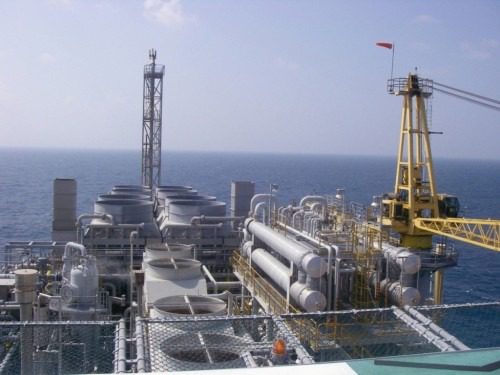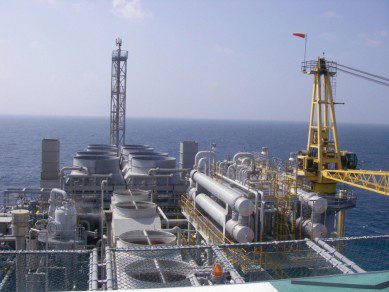Economic Issues
How Much Does The Oil Sector Matter? -Uddin Ifeanyi


…with sales falling in response to softening demand, what would the private sector’s investment cycle look like? Finally, add net exports. With oil prices down, and the difficulties we are having flogging portions of our crude cargo, it is inevitable that we have been importing more than we have exported since the current crisis began.
In 1986 (December), Chu S. P. Okongwu, an atypical cerebral-type who was Minister of Finance and National Planning with the Ibrahim Babangida administration wrote a tome in which he examined the relationship of the (upstream) oil sector to the Nigerian economy. In February 1986 when Mr. Okongwu took on the finance minister’s duties, the price of oil was in the process of looking for a new bottom. His book, 11 months later, titled the Nigerian Economy: Anatomy of a Traumatized Economy with Some Proposals for Stabilisation (Issues in Nigerian development) largely argued that the oil sector was an “exclave” of the Nigerian economy.
He proffered worthwhile suggestions for addressing the burden posed by the sector, but the main focus was on how much domestic value extractive oil and gas operations in the country failed to create despite the impossibly large fiscal dependence of the economy on oil export receipts. In 1986, the important numbers had the oil sector accounting for 24 percent of domestic output, and about 80 percent of government receipts.
Inevitably, over the years since oil exports have dominated our fiscal space, arguments have arisen to the effect that since the oil sector does not use domestic inputs, continues to employ few (very highly skilled) local labour, and does not feed directly into the domestic economy, its vicissitudes are only going to have a marginal impact on domestic economic activity. At the most, the core of these arguments hold, the urban segment of the economy was always going to be hardest hit. Dependent on money incomes as most city dwellers are, dwindling petroleum revenues was always going to hurt.
However, the Nigerian economy is organised in other important ways. And, according to this discourse, it matters that three-quarters of our population live in the provinces, where they subsist on backyard farms, and allied artisanal activities. To this extent, they ought to be less pervious to the difficulties of the oil industry. Moreover, because this was the larger part of the economy, this was supposed to confer some form of immunity on the economy.
At current prices, we are looking to earn a little over US$40bn this year. Therefore, government spending drops by half; and the economy suffers in result. Consumer spending falls off too; in part, because government personnel have been owed salaries for months. But also because contractors are also awaiting payments from a skint public sector.
Almost three decades after, as the oil sector passes through another “bust” phase (after a “boom” whose supposedly “new” features were going to re-write the industry’s dynamics), we, again, encounter this “domestic resilience in the face of dwindling oil receipts” argument. This time around, even the “important numbers” have changed. Today, as a contributor to domestic output, the oil sector accounts for just about half of what it did in 1986 — depending on whether you include domestic oil refining, it is anything from 10 percent to 11.5 percent of GDP. Even its contribution to government receipts appear slightly lower, although, we still seem undecided on what the new numbers are.
The trouble is that attractive though this argument is, the new numbers on domestic output growth recently put out by the Nigerian Bureau of Statistics (NBS) appear to belie the “immunity to the oil exclave” narrative. According to the NBS, in the three months to end-July this year, “the nation’s Gross Domestic Product (GDP) grew by 2.35 percent (year-on-year) in real terms. This was lower by 1.61 percent points from growth recorded in the preceding quarter and also lower by 4.19 percent points from growth recorded in the corresponding quarter of 2014. Quarter on quarter, real GDP increased by 2.57 percent”.
The NBS goes on to describe in useful details how the different sectors of the economy fared in the quarter in review. But that the contraction in domestic output growth has followed the collapse of global oil prices is an undeniable fact. What are these analyses missing? As a people, we seem to be ignoring the “fiscalisation” of oil earnings over the last half a century, and the effects of this on the larger economy.
First point of call is how lower oil receipts hurt government spending. With oil selling at US$114 per barrel last year, we earned about US$80bn. At current prices, we are looking to earn a little over US$40bn this year. Therefore, government spending drops by half; and the economy suffers in result. Consumer spending falls off too; in part, because government personnel have been owed salaries for months. But also because contractors are also awaiting payments from a skint public sector. Consumer spending tails off also as employees elsewhere (in the private sector) hold off spending for fear of the uncertainties ahead.
These uncertainties matter. For they also impinge on businesses’ investment decisions. Would businesses continue, today, investment plans described when oil prices were above US$100/barrel? Moreover, with sales falling in response to softening demand, what would the private sector’s investment cycle look like? Finally, add net exports. With oil prices down, and the difficulties we are having flogging portions of our crude cargo, it is inevitable that we have been importing more than we have exported since the current crisis began.
In other words, the oil sector matters more, much more to this economy than its share of domestic output would suggest!


















